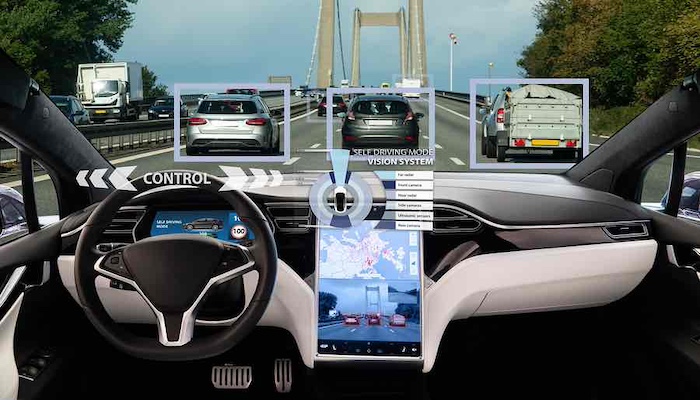
US Proposals to Ban Chinese Software for Self-Driving Cars
In response to national security concerns, the US intends to impose restrictions on self-driving car software produced in China.
Within the next few weeks, the US Commerce Department is anticipated to recommend a ban on Chinese software in connected and autonomous vehicles, according to people familiar with the situation. By taking this action, the Biden administration hopes to stop Chinese software from being used in cars with Level 3 automation and above, so preventing Chinese automakers from testing their autonomous vehicles on American roads.
According to the sources, the planned law will also apply to cars that include sophisticated wireless communication components made in China. Manufacturers and suppliers will have to confirm that no “foreign entity of concern,” like China, produced the software for linked and sophisticated autonomous vehicles.
The Commerce Department announced last month that it would release proposed regulations in August that would target software produced in China and other hostile nations. According to a spokesman for the Commerce Department, the agency is worried about the risks linked car technology pose to national security.
Issued by the Commerce Department’s Bureau of Industry and Security, the proposed rule will target particular automobile systems. The proposed rule will be available for industry evaluation and feedback.
In response, a spokesman for the Chinese Embassy in Washington emphasized the global nature of the electric car market and argued in favor of fair competition and respect for international trade regulations. The spokeswoman continued by saying that China would protect its legitimate interests and rights.
The State Department and White House convened a conference with industry leaders and supporters on Wednesday to discuss the vulnerabilities to national security posed by connected automobiles. Participants in the meeting to talk about data and cybersecurity issues included representatives from a number of nations, including the United States, Australia, Canada, the European Union, Germany, India, Japan, South Korea, Spain, and the United Kingdom.
Under certain circumstances, drivers are permitted to partake in activities like watching movies or using cellphones thanks to Level 3 automation, commonly referred to as conditional driving automation.
Legislators in the United States voiced worries in November regarding Chinese corporations gathering and using private information while conducting autonomous vehicle tests here. They noted that ten significant Chinese companies—Baidu, Nio, WeRide, Didi, Xpeng, Inceptio, Pony.ai, AutoX, Deeproute.ai, and Qcraft—had completed more than 450,000 test drives in California in the course of a year.
Chinese autonomous car manufacturers operating in the US have raised national security concerns, according to Transportation Secretary Pete Buttigieg. The administration is especially concerned about the possibility that connected cars could record or listen in on passenger discussions or even take over the vehicle.
The national security threats are fairly high, as Commerce Secretary Gina Raimondo noted in May, underscoring the gravity of the situation. We made the decision to act because this is very serious information.
All Categories
Recent Posts
Man United could lose Yoro, which would be a huge blow
McCarthy: I am able to change things in Kenya
Tags
+13162306000
zoneyetu@yahoo.com



